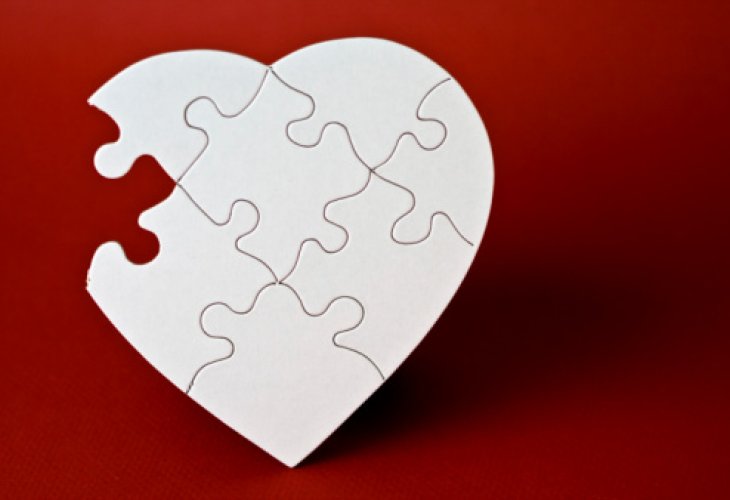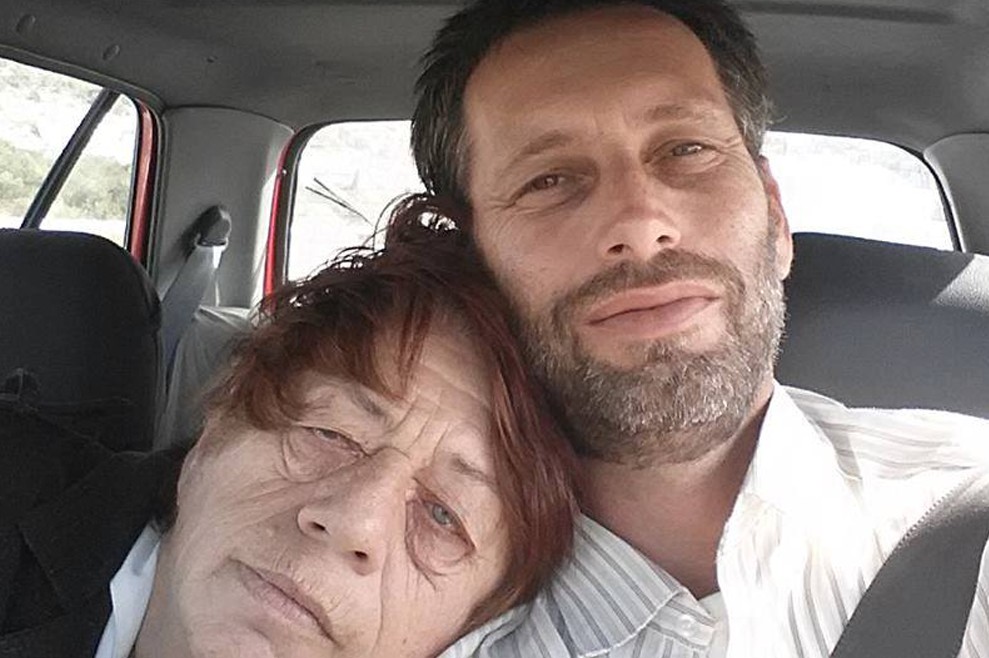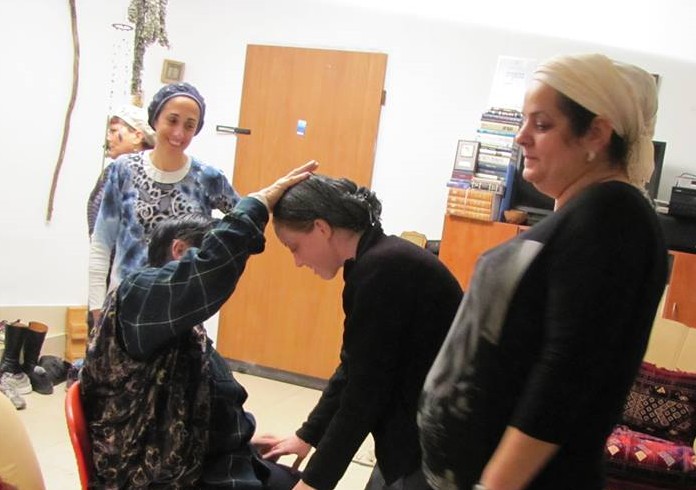Tzachi Dichner: "My Mother Was Always There For Me. I Didn't See It Because I Was Busy Raising Her"
Raising My Mother: The extraordinary story of a mother on the autism spectrum and her son, who overcame all possible challenges to become who they are today. Now, they conduct workshops together, teaching others how to do the same.
 Tzachi with his mother, Chaya
Tzachi with his mother, Chaya"Once upon a time, alchemists thought it possible to turn lead into gold. But it didn't work because the real gold is wisdom, and true wisdom is when the body becomes refined, and the person succeeds in finding a close connection to divinity."
It's no wonder Tzachi Dichner, son of two parents on the autism spectrum who lost his father at the age of ten, defines himself as an alchemist. These words take on a profound meaning in our conversation.
For those who look at Dichner today (43), a father of two children—Amit, 12, and Omer, 9—it is hard to believe how the boy who "talked to himself" through the maze of challenges, which were more than the average person can handle, became a "life coach," conducting personal empowerment workshops across the country with his charming mother, Chaya.
From a very young age, Dichner understood that his parents were "not like everyone else," and as an only child, he had no choice but to slide into his inner world to find answers to all the questions he had. "I was born into this reality, and from the moment I can remember, I was never like others. No one helped me with homework, and I never had a figure to assist me with school issues. I also never had a room of my own to 'escape' to when things were tough, like many kids my age."
"A regular kid boasts about his parents, and when he's upset, he has a place to vent his anger and fear. My mother didn't do anything on purpose; she didn't choose to be born this way - but I didn't have that, nor did I have anyone to blame. I had no one to talk to, consult or cry to. The price I paid as a child was a great anger that formed within me about the whole situation."

Why didn't you tell anyone what you were going through?
"I didn't share because I saw that nobody was interested. I dealt with things alone, but then I was mad at myself for being so different and not like everyone else."
Then, at only 10 years old, his father passed away, leading to a sharp turn in his life when he and his mother, Chaya, moved to live with his grandparents. "They were amazing people who taught me a lot about life and gave me things I lacked from childhood. I had a very special bond with my grandfather, and I loved talking to him," Dichner recalls. "But when the counselor asked if I wanted to go to boarding school and come home every three weeks - I said yes."
"Our trials were meant to teach us one thing - emotional alchemy"
In the boarding school, there was a completely different atmosphere, and Dichner soon found himself adopting a completely different mindset about his life challenges. Suddenly, they no longer seemed so threatening, but rather something to grow from and learn together. "One of the ways that helped me most to deal with challenges at that time was solitude," he explains. Although he does not define himself as religious, the connection with the higher entity called Hashem was always there. Initially at age 10 when his father died, and later in the enchanting nature reserve of the 'Hadassim' boarding school. "I remember after school I would put my bag in the room, cross the fence leading out into nature - and wander around for hours. Talking to *Hashem*, and telling Him what I'm going through."
What did you learn from those conversations about yourself and the world?
"Above all, I think I learned to observe, and be more attentive to myself and others. I felt that Hashem was telling me: 'You can't always complain to me. Sit down and write to yourself what you want from life, and try to see the full picture. You can't just throw broken words at me like "it's hard for me" and "I'm fed up." Say what you expect, what would make you happy - learn to be focused."
"That is something that stays with me to this day. I meet many people who have all kinds of difficulties, who deal with various packages in life and only know how to say what's wrong. But wait, stop. When was the last time you sat and talked to Hashem, considered what you have, and thanked for it? When was the last time you learned to go inside, focus on the good, and drive the 'Ferrari' called your soul?
"Hashem created us in His image, and we have a divine soul within us - but many times we insist on focusing on the small and unimportant things. If we bring this down to the concepts of the material world, it's like a person riding a scooter when they have a Ferrari waiting for them in the garage. Our, my trials, came to teach us just one thing - I call it emotional alchemy: in order to be worthy of driving the Ferrari, we need to learn how to drive, to prepare tools to be able to contain this powerful energy. A kind of preparation to grow."
"Then the penny dropped for me that really everything happened for the best, and it's not just a cliché."
When asked how he manages to adopt such a forgiving attitude towards life and those around him despite all the hardships he has experienced, Dichner says it was due to the fact that he didn't take anything for granted. "With feelings of 'why did this happen to me,' 'why am I different from everyone,' and 'why doesn't my mom visit me at the boarding school like the other moms' - I suddenly understood that despite everything, there was always someone in my life sent to help.
"So yes, there were many moments of difficulty when I realized that I was the one raising my mom, not the other way around. But it turned out that no matter what difficulty I had to deal with - the right people or successful ideas and insights, came to me somehow, especially in the most crucial moments."
And often, it was thanks to his mother Chaya. For example, before his wedding, his mother found a way to speak to the wife of industrialist Stef Wertheimer (currently his ex-wife, who serves as CEO of the 'Kishorit' village where Tzachi's mother resides) and told her about her son's wedding. 'Tell Tzachi to contact us for anything he needs,' was the (heartwarming) response. "And it wasn't the only time. While I was struggling with questions, my mom was finding solutions - in her own way."
Over the years, as the time barrier grew, their relationship strengthened to the point where he now says: "My mom has become my spiritual teacher. There was a time in my life when I didn't know where I would lay my head the next day, and my mom provided me with the warm corner I so desperately needed - my own room in her rented apartment in Carmiel. That was the first time I got to feel a mom. During the Shabbatot we spent together, I made *Kiddush* and my mom made sure there was a hot meal. We sang, we talked, and suddenly there was that moment when I looked into her eyes and realized I had missed something. Only then did the penny drop for me that really everything happened for the best, and it's not just a cliché."
In their joint journeys today, Chaya blesses people - and they cry with excitement. "Mom was always there for me, but I didn't see it because I was busy asking 'how to be her parent.' The Ferrari was in the parking lot the whole time; I just needed to open my eyes and see it. That's something I learned firsthand about people with disabilities, or any other person who needs help and support from society - more than others. If we help people with disabilities integrate among us or support widows and orphans - we gain from it. These are our siblings. If we turn a blind eye, and refuse to see them, we harm ourselves, not anyone else. What you put out there and how you treat others, is what you get back. It comes back to you like a boomerang."
What feedback do you receive about your joint and unique activity as a mother and son?
"The goal of our meetings with others is to do good and improve through our personal story. People draw strength from our story because it has woven into it the diamond insight - that everyone can learn something about themselves and their lives from it. And thankfully, the responses are very moving.
"The first thing many women feel when mom talks and blesses everyone is that they want to hug her and thank her for who she is."

In closing, what is your advice for people who are dealing with a similar challenge and find it hard to accept their parents as they are?
"One of the insights I got on Yom Kippur is the essence of forgiveness. I realized that a parent who hurts is an adult acting from a place of being a hurt child. No one is created in a place wanting to hurt others. People who hurt are themselves hurt children, doing it because that's the way they know. The hurt to those weaker than them happens because they don't have the strength to deal with what they went through.
"My advice, and this is something I tell my children, is that if you want your life to be fuller and better - you have to forgive those who hurt you and judge them with a good eye. When you understand they hurt you out of weakness, you will stop being angry, and that's the goal. Anger is negative energy that dominates all the good parts of us, and we don't want it there. It only ruins us from the inside.
"Forgiveness, on the other hand, is good not only for the one who hurt but also for the forgiver - whose life will become more peaceful and inclusive. It's in our hands to decide 'let there be light,' and that's what will bring us to heaven because Hashem doesn't do anything for no reason. If someone hurt you, it's because you need to increase love in the world and help them grow. Help them and yourself, to grow. This is exactly what the righteous do with us because surely they must have been hurt by someone sometime. The difference is they transformed the hurt and anger into acceptance and infinite love for the offender - and improved themselves in this world and the world to come. This is exactly what we need to learn and implement."

